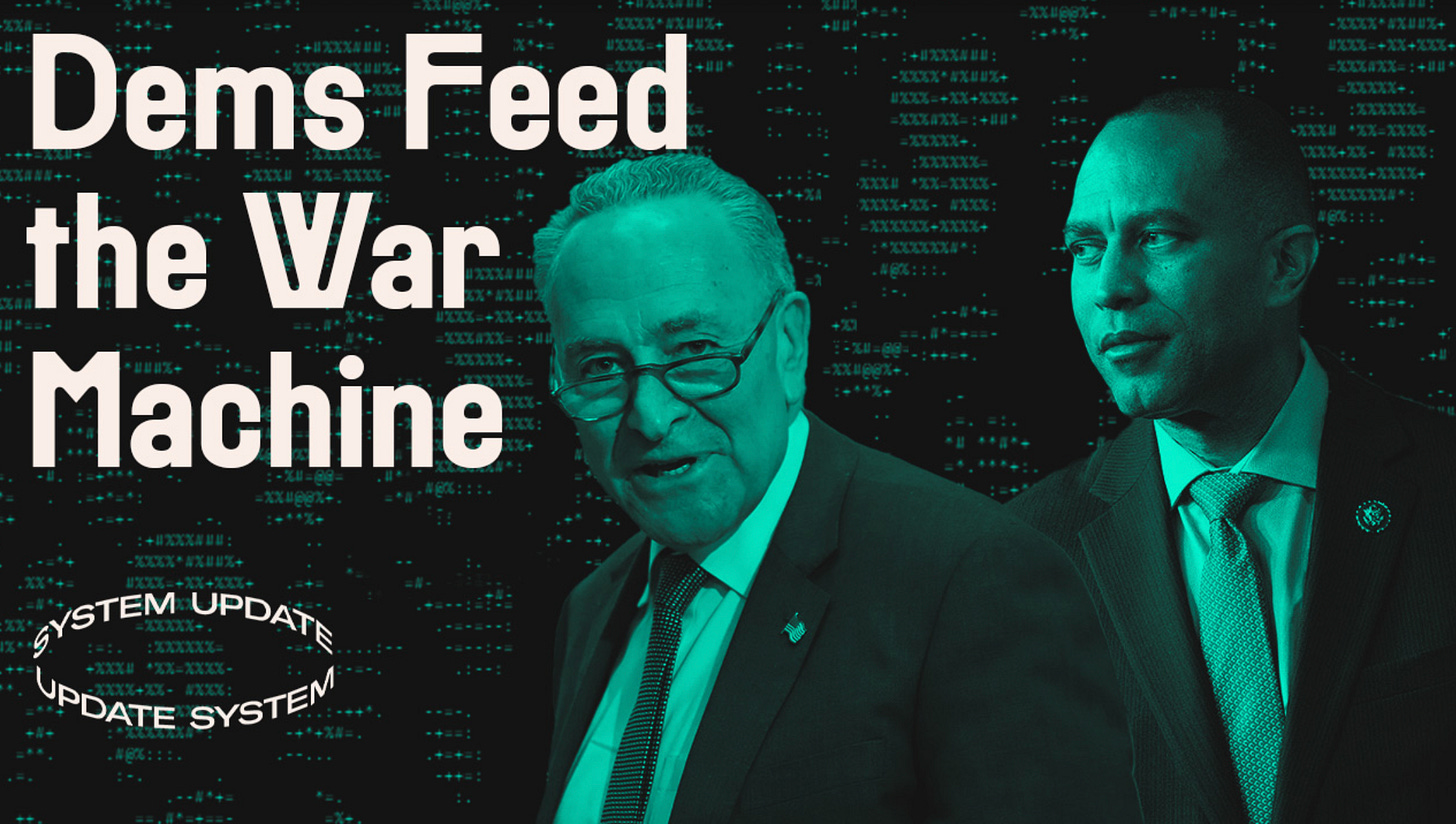Washington Expands the War State
VIDEO TRANSCRIPT: Plus, an interview with the New York Post's Miranda Devine on the Democrats' Censorship Regime
Watch System Update Episode #6 here on Rumble.
Note From Glenn Greenwald: The following is the full show transcript, for subscribers only, of a recent episode of our System Update program, broadcast live on Rumble on Monday, December 19, 2022. As I indicated last week, we now have a service in place that will produce full transcripts of all the live shows we do – Monday through Friday, live on Rumble, at 7:00 pm ET – for our subscribers here.
We have a backlog of the first ten episodes from the first two weeks of shows that we'll post here over the next five days. We will be off from Wednesday, December 28 until Sunday, January 1. We'll be back live on Monday, January 2, 2023, and will start publishing full transcripts of every show here within the next 24 hours for those we prefer to read the program rather than watch.
In this episode, we take a look at the enormous $858 billion military budget recently passed by Congress. Even after the fall of the Cold War, the end of the War on Terror, and the last troop’s departure from Afghanistan, the Pentagon budget continues to explode to all new and obscene heights, with the U.S. rapidly approaching the first ever trillion-dollar annual weapons budget. We explain who is behind this, who is objecting if anyone, and who is benefiting. We also look at the revelations from the Twitter Files from Matt Taibbi and other journalists — especially those showing a very tightly integrated partnership between the Big Tech censorship regime and the U.S. Security State — why the reporting is being ignored, if not scorned by the Democratic Party, including its so-called left wing as well as their aligned media corporations. And we talk to one of the journalists who has been covering this most astutely for over two years now: Miranda Devine of The New York Post.
Monologue:
That old cliche that the only two things certain in life are death and taxes needs an amendment, at least if you're an American. Something else is just as certain and inevitable. Namely, the U.S. budget for military and intelligence agencies will increase every year no matter what. The U.S. is, and for decades has been, the largest military spender in the world by far. The statistics are by now familiar. The U.S. spends more than the nine highest-spending nations combined that come after it. Of all the world's military spending, if you aggregated it all from every nation into one pile, 38% of it is from U.S. spending.
And it's not as if the U.S. spends so much more on its military because it has more than anybody else. Of the world's top ten military spenders, the U.S. also spends the second-highest share of its gross domestic product, just after Saudi Arabia. What's most impressive is how inventive and resilient is this web of a multi-tentacle war machine, which Dwight Eisenhower, 61 years ago, dubbed the “military-industrial complex”. No matter what is going on in the world, they always find -- or concoct -- reasons why the military budget must grow no matter how inflated it already is.
Since the end of World War II, the prime justification for pouring so many of our national resources into the coffers of weapon manufacturers was the Cold War. The premise that the United States faced a grave and existential global threat from Soviet Communism and thus had to conduct a series of hot wars, proxy wars, and cold wars on every continent on the earth overthrowing governments in South America, Asia, and the Middle East; installing and propping up dictators; decades-long wars in Korea and Vietnam, in Central America, just an endless carousel of conflicts, wars and internal strife that always required more sophisticated weaponry and an always growing standing army.
But then the Soviet Union fell along with the Berlin Wall. The global Communist menace was no more. And in the late 1980s, under the first Bush administration into the 1990s, under Bill Clinton, Americans were promised what was called, quote, a “peace dividend”. The idea was that, without an existential threat to face any longer, military spending could and would be substantially reduced and Americans would enjoy all the benefits of newly funded public infrastructure, social programs, and tax breaks.
It worked, a little bit, for a short while. Military spending did gradually decrease in the late 1980s and early 1990s -- though always with the U.S. far in the lead in global military spending -- but just a few years later, it plateaued…




